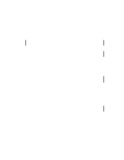| dc.contributor.advisor | Freitas, Soraia Napoleão | |
| dc.creator | Peripolli, Luciane Felin | |
| dc.date.accessioned | 2019-10-11T14:24:15Z | |
| dc.date.available | 2019-10-11T14:24:15Z | |
| dc.date.issued | 2005-03-17 | |
| dc.date.submitted | 2005 | |
| dc.identifier.uri | http://repositorio.ufsm.br/handle/1/18557 | |
| dc.description | Monografia (especialização) - Universidade Federal de Santa Maria, Centro de Educação, Curso de Especialização em Educação, RS, 2005. | por |
| dc.description.abstract | The present search, result of a work for the Course of
Specialization in Institutional Psychopedagogy of Santa Maria’s Federal
University realized in 2005, it is a study of case of qualitative stamp, about
the actions of Education of the Tiaraju State Institute for effective the deaf
students’ inclusion in the educational space. They were subject of the
research eight teachers of the regular teaching (a director, two vicedirectors,
three teachers of the normal course, two teachers of the initial
series) and the deaf students’ of the special class of this school family. In
the Theoretical Referencial I highlight the evolution of the special
education through the times, the ways of the education of deaf in the
world, the trajectory of the deaf in Brazil, the deaf and the educational
abordations the history of the deaf in San Sepe and the public politics –
guidelines for the Special Education. The collected datas, through semistructured
interviews were analyzed and transcribed by the interviewer. In
agreement with the participants’ of the research depositions (family and
teachers), some important subjects emerged. Discovery of the Deafness;
the Communication of the Family with the Deaf; the schoolarization of the
Deaf and the Difficulties found by family. The teacher before the concepts
integration/inclusion; the perspectives in relation to Inclusive School –
Actions and Difficulties; the deaf student in the regular school –
perspectives and actions. In the subjects interviewees’ speech, I
evidenced that the process of Inclusion begins from the student’s birth with
SNS, the walk for a Inclusive School is influenced by countless aspects
they be it contemplated inside of the regular schools by its teachers and in
different wider educational and social dimensions opportunyting resignify
concepts, values and practices, provoking true ruptures in the way of to
understand and to conceive the differences among the human. Being like
this, I propose some possible forms of redimension forms the teachers’
practice and the relationship among the countless people that, in a direct
orr indirect way, they participate of the process of the deaf student’s
inclusion in the educational space to regulate, among them the conscious
and open discussion, more objective information to the parents and teachers and mainly courses and reflexive studies to make a quality education for everybody. | eng |
| dc.language | por | por |
| dc.publisher | Universidade Federal de Santa Maria | por |
| dc.rights | Acesso Aberto | por |
| dc.rights | Attribution-NonCommercial-NoDerivatives 4.0 International | * |
| dc.rights.uri | http://creativecommons.org/licenses/by-nc-nd/4.0/ | * |
| dc.title | Educação inclusiva e Instituto Estadual Tiaraju: uma discussão necessária | por |
| dc.title.alternative | Inclusive education and State Institute Tiaraju: a necessary discussion | eng |
| dc.type | Trabalho de Conclusão de Curso de Especialização | por |
| dc.degree.local | Santa Maria, RS, Brasil | por |
| dc.degree.specialization | Educação | por |
| dc.description.resumo | A presente pesquisa, resultado de um trabalho para o Curso de
Especialização em Psicopedagogia Institucional da Universidade Federal
de Santa Maria, realizado em 2005, é um estudo de caso de cunho
qualitativo, sobre as ações do Instituto Estadual de Educação Tiaraju para
efetivar a inclusão de alunos surdos no espaço educacional. Foram
sujeitos da pesquisa: oito professores do ensino regular (um diretor, duas
vice-diretoras, três professoras do Curso Normal, duas professoras das
séries iniciais) e três pais de alunos surdos da classe especial desta
escola. No Referencial Teórico destaco: a evolução da educação especial
através dos tempos; os caminhos da educação de surdos no mundo; a
trajetória do surdo no Brasil; o surdo e as abordagens educacionais; a
história do surdo em São Sepé; e as políticas públicas - diretrizes para a
Educação Especial. Os dados coletados, através de entrevistas semiestruturadas,
foram analisados e transcritos pela entrevistadora. De
acordo com os depoimentos dos participantes da pesquisa (família e
professores), emergiram algumas questões importantes: Descoberta da
Surdez; A Comunicação da Família com o Surdo; A Escolarização do
Surdo e as Dificuldades Encontradas pela Família; O Professor diante dos
Conceitos Integração/Inclusão; As Perspectivas em relação à Escola
Inclusiva - Ações e Dificuldades; O Aluno Surdo na Escola Regularperspectivas
e ações. Na fala dos sujeitos entrevistados, evidenciou-se
que o Processo de Inclusão inicia desde o nascimento do aluno com NEE.
A caminhada para uma Escola Inclusiva é influenciada por inúmeros
aspectos a serem refletidos dentro das escolas regulares, pelos seus
professores e também em diferentes dimensões educacionais e sociais
mais amplas, oportunizando ressignificar conceitos, valores e práticas,
provocando verdadeiras rupturas no modo de perceber e conceber as
diferenças entre os seres humanos. Sendo assim, proponho algumas
possíveis formas de redimensionar a prática dos professores e as
relações entre as inúmeras pessoas que, de forma direta ou indireta,
participam do processo de inclusão do aluno surdo no espaço
educacional regular, entre elas a discussão consciente e aberta,
informações mais objetivas aos pais e professores e, principalmente,
cursos e estudos reflexivos para efetuar uma educação de qualidade para
todos. | por |
| dc.publisher.country | Brasil | por |
| dc.publisher.initials | UFSM | por |
| dc.subject.cnpq | CNPQ::CIENCIAS HUMANAS::EDUCACAO | por |
| dc.publisher.unidade | Centro de Educação | por |



